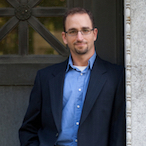Impact investing has the potential to change the world. By driving more money and investments into green businesses, the field stands to facilitate the needed transition in the global economy to a more sustainable, regenerative one. Recently, I attended a talk by Murray Clay, of the Ulupono Initiative. Ulupono has been billed as the only impact investment venture capital firm in Hawai'i. Specifically, the Ulupono Initiative invests in companies that help the state grow its own food, reduce its waste, and use renewable energy.
So how does an entrepreneur approach an impact investing firm and solicit funding for a green project? What is the best strategy to effectively communicate with impact investors and help bring the project to life?
Clay answered that Ulupono looks for best in class projects that, with capitalization, can scale nicely, like efficient feedstock for biofuels plant. They seek long term viability. They look for experienced and capable management. A good example, according to Clay, is Sopogy, founded by local entrepreneur Darren Kimura in 2002. Sopogy's solar concentrators are best in class, and have the shortest payback period among commercial solar options. Their other investments have included ClearFuels which produces biofuels that can be converted to jet fuel.
So what is weighed more heavily at Ulupono? Mission or profitability? The answer is neither. The realistic potential for good risk-adjusted returns is what is likely to get their investment. Some people, Clay said, bemoan their focus on profits. Without profits, however, philanthropy can only last so long. Profits give projects legs of their own so they don't have to continually be pushed forward.
"The bottom line can be a harsh task master," said Clay. "But the lessons an entrepreneur can take from the bottom line are critical for business success." Without the focus on the profitability of your project, the market is likely to vote against your project and you'd be wise to reconsider your business model regardless of how interested an investor is, according to Clay.
According to Clay, arguments like "If only 10% of people adopted our technology, our impact would be…." are simply too easy to make and too abstract to have real world viability.
Clay told the story of the boy who throws starfish back into the water and cites that he can make a difference to that one. While this is a touching story, this is the not the kind of investment they'd make. Clay joked that if someone came with a solar powered starfish relocator that could comb miles of beach and save thousands of starfish, now that would be the kind of thing that might draw their investment.
-----------------------------------------------------------------------
Scott Cooney is the developer of a GBO Hawai'i, a new Triple Bottom Line board game, where players are impact investors helping Hawai'i transition away from oil and imported foods, and the author of Build a Green Small Business (McGraw-Hill).
Follow Scott's company, GreenBusinessOwner.com, on Twitter: Twitter.com/GreenBizOwner

Scott Cooney, Principal of GreenBusinessOwner.com and author of Build a Green Small Business: Profitable Ways to Become an Ecopreneur (McGraw-Hill, November 2008), is also a serial ecopreneur who has started and grown several green businesses and consulted several other green startups. He co-founded the ReDirect Guide, a green business directory, in Salt Lake City, UT. He greened his home in Salt Lake City, including xeriscaping, an organic orchard, extra natural fiber insulation, a 1.8kW solar PV array, on-demand hot water, energy star appliances, and natural paints. He is a vegetarian, an avid cyclist, ultimate frisbee player, and surfer, and currently lives in the sunny Mission district of San Francisco. Scott is working on his second book, a look at microeconomics in the green sector. In June 2010, Scott launched GreenBusinessOwner.com, a sustainability consulting firm dedicated to providing solutions to common business problems by leveraging the power of the triple bottom line. Focused exclusively on small business, GBO's mission is to facilitate the creation and success of small, green businesses.














